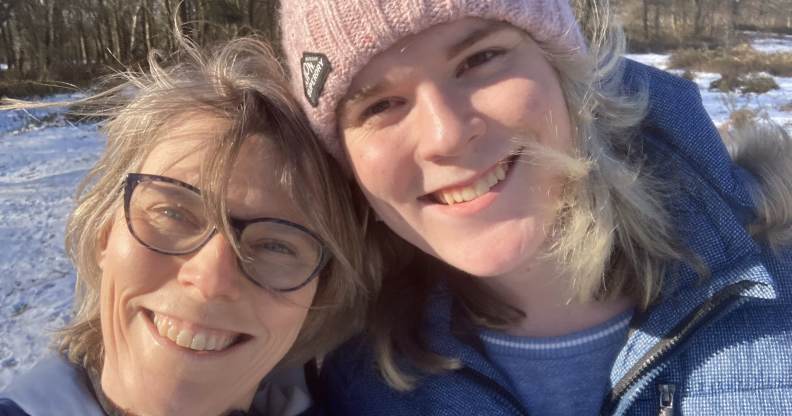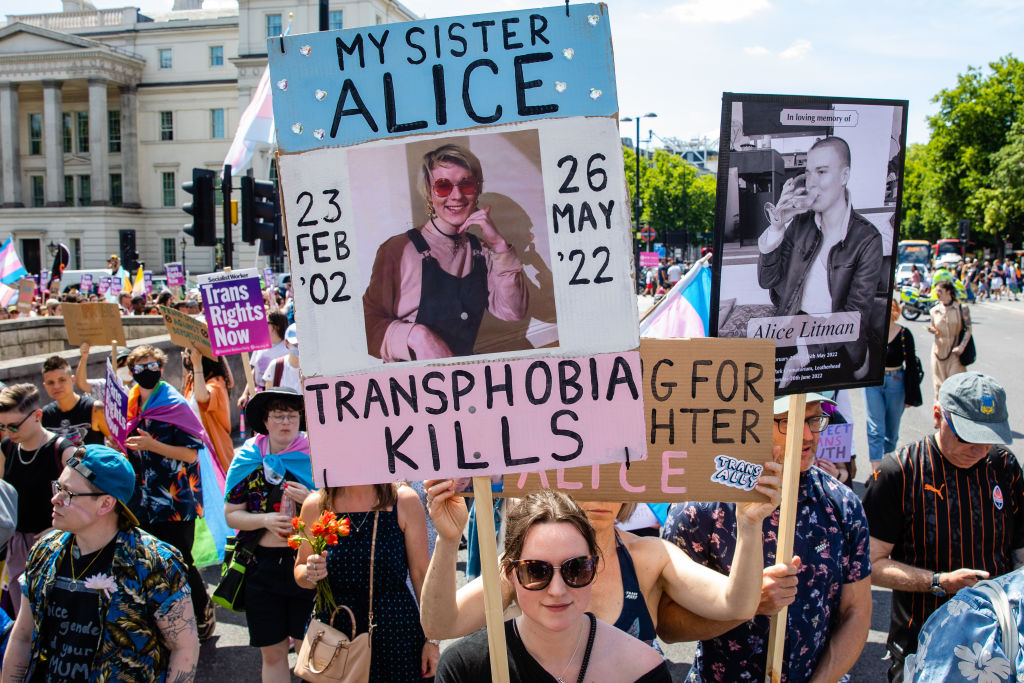GPs should do more to help trans people on waiting lists, Alice Litman inquest hears

Alice Litman with her mum. (The Litman family)
GPs should be doing more to help transgender patients on long waiting lists, a leading practitioner has said at the inquest into the death of Alice Litman.
Litman, a 20-year-old transgender woman from Brighton, had been waiting over 1,000 days for her first appointment at a gender identity clinic before she took her own life.
She had been referred to the NHS Gender Identity Development Service in 2019, but was still awaiting an initial assessment when she passed away on 22 May 2022.
Now, an inquest is examining the delays that Litman faced in accessing gender-affirming care, which her family claims is partly to blame for her death.

Speaking at the inquest this week, the head of the NHS Gender Identity Clinic, Dr James Barrett, explained that the sheer “magnitude” of people in need of gender-affirming healthcare outweighs his clinic’s capabilities, per BBC News.
Dr Barrett shared that, according to a 2021 census, around one in 200 people did not identify with the sex on their birth certificate.
While Dr Barrett’s clinic is working to treat patients who were referred to them as long as five years ago, waiting lists at other clinics are even longer.
Dr Samuel Hall, a GP Partner at Brighton’s WellBN where Litman had been a patient before her death, also spoke at the inquest.
He told the court that GPs should be doing their bit to help transgender patients while they wait for gender-affirming care, by prescribing them with cross-sex hormones.
“GPs can and should be doing this. Not least because we can get to people sooner,” Dr Hall said.

He also pointed out that, in many instances, it is not necessarily slow access to gender-affirming care that impacts a trans person’s mental health, but “the lack of acceptance of them as a trans person in the first place.”
Litman was referred to the NHS Gender Identity Development Service in 2019 but was kept on a waiting list for a shocking 1,032 days.
The same year, she was referred to CAMHS (Child and Adolescent Mental Health Services) after a suicide attempt, her mother told the inquiry.
Despite another attempt that same year, Dr Litman’s daughter’s mental health was not made as much of a priority as it should have been, and discharged her entirely in 2020.
Alice’s mother, Dr Caroline Litman, also contributed to the ongoing inquest, telling the court this week that she believes her daughter could still be with us today if she had been supported by the healthcare system.
“In my view, [Alice] felt she was not being taken seriously, and doctors did not understand her,” she wrote in a letter.
As a former NHS employee, Dr Litman expressed the “shame” she feels that she was unable to get her daughter “past the gatekeepers” for gender-affirming and mental health care.
Suicide is preventable. Readers who are affected by the issues raised in this story are encouraged to contact Samaritans on 116 123 (www.samaritans.org), or Mind on 0300 123 3393 (www.mind.org.uk). Readers in the US are encouraged to contact the National Suicide Prevention Line on 1-800-273-8255.

